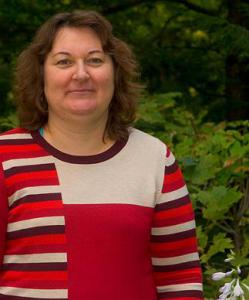Addiction Expert Shontelle Prokipcak to be Featured on CUTV News Radio
These kids don’t know how to regulate their emotions because they’ve been using substances to do that. We work on concrete skills for kids to use to deal with stress.
OTTAWA, ONTARIO, CANADA, February 9, 2015 /EINPresswire.com/ -- Children who begin using substances while their brain is still rapidly developing can become addicted much faster than an adult, sometimes as quick as six months depending on the substance. If we can prolong a child’s introduction to substances, there’s less of a chance of an addiction developing. Working with families, schools, and communities can prevent these problem behaviors before they occur.— Shontelle Prokipcak
But according to the Canadian Alcohol and Drug Use Monitoring Survey, youths 15 to 24 years old have the highest self-reported use of illicit substances compared to other Canadians and are approximately five times more likely to report harm because of drug use. A child struggling with addiction can’t be expected to navigate their way through these challenges by themselves. It’s a family process.
Shontelle Prokipcak is a registered social worker who has been providing mental health and addiction services for children, youth, young adults and their families in the Ottawa Region for over 14 years. Shontelle has extensive training and experience in counseling, crisis management, trauma, victim assistance, addiction issues and treatment, as well as youth conduct disorders.
“I collaborate with schools and the family doctor and the families themselves, even grandparents, so everyone is working together,” says Shontelle. “I try to get everybody on board with my treatment plan because we have better outcomes from that kind of collaboration.”
Shontelle's expertise is working with children, youth and families who have challenges at home or in the community and struggle with anxiety and depression, behavioral problems and addiction.
“These kids don’t know how to regulate their emotions because they’ve been using substances to do that,” explains Shontelle. “We work on concrete skills for the kids to use to deal with stress.”
Shontelle says the youngest child she will see for substance abuse is 12 or 13. She will typically first meet with the child individually to get to know them and for them to feel comfortable.
“I put the child in the driver’s seat so to speak,” says Shontelle. “Sometimes they want to be there; sometimes it’s a requirement of the family or the legal system. I let them know I’m working for them and I ask them to give me an opportunity to work. We set goals together, we develop the plan and we share it with the family.”
Shontelle knows firsthand the impact these kinds of issues can have on a family. Shontelle herself grew up in a single parent home characterized by addiction, mental health issues and poverty. Today, Shontelle is an advocate both for children struggling with addiction as well as the children of addicts.
“I’ve always enjoyed working with youth,” says Shontelle. “After they’ve done their work with me, they go on with their lives and hopefully prosper, so I love hearing from the people I’ve worked with. We want to help children navigate their way through their developmental stages appropriately.”
CUTV News Radio will feature Shontelle Prokipcak in an interview with Jim Masters on February 11th at 10am EST.
Listen to the show http://www.blogtalkradio.com/closeuptalkradio. If you have a question for our guest, call (347) 996-3389.
For more information on Shontelle Prokipcak, visit http://www.shontelle.ca/
Lou Ceparano
CUTV News
(631) 421-8500
email us here
Legal Disclaimer:
EIN Presswire provides this news content "as is" without warranty of any kind. We do not accept any responsibility or liability for the accuracy, content, images, videos, licenses, completeness, legality, or reliability of the information contained in this article. If you have any complaints or copyright issues related to this article, kindly contact the author above.


